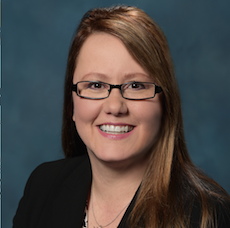
My home base of Cleveland is hosting the Republican National Convention beginning today. I won’t be in the middle of things on most days, but I’ll be watching with the rest of the country this week — and next week, when the Democratic National Convention meets in Philadelphia — as party nominations become official and platforms are discussed.
Just in time for the conventions, a new poll from the Kaiser Family Foundation finds that presumptive Democratic nominee Hillary Clinton “holds a clear advantage” over presumptive Republican nominee Donald Trump when it comes to health issues. That’s mainly because Democrats and Republicans are likely to stick with their parties and independent voters are more blue than red, according to Kaiser. But it may or may not mean much as far as election results, Kaiser said.
Some of the findings:
- More survey participants said that Clinton best represents their views on healthcare compared with those who said they preferred Trump (46% versus 32%), although 15% of respondents said that neither represents their healthcare views.
- More than half of those surveyed said Trump is not paying enough attention to healthcare issues, compared with 35% who said the same about Clinton.
- Poll-takers also were more likely to say they trust Democrats than Republicans on major national healthcare issues such as Medicaid, Medicare, the government’s role in healthcare, healthcare costs, drug costs, opioids, the future of the Affordable Care Act, women’s reproductive health choices and Zika funding.
- When it comes to determining the future of the Medicare program, 45% of senior voters said they trust the Democrats, compared with the 41% who said they trust the Republicans.
“These differences do not necessarily mean that health will be a major factor in the election,” Kaiser said, noting that healthcare was cited as being “extremely” important to 37% of poll participants. An equal percentage rated the economy/jobs factor as extremely important. A higher percentage of respondents, however, deemed terrorism/national security (46%), candidates’ personal characteristics (46%) and gun policy (38%) as extremely important in influencing their votes.
Kaiser said that Democrats and Republicans were about equally as likely to list healthcare as an extremely important issue this election cycle, which contrasts with recent elections, where Democrats were more likely to rank healthcare as a top issue.
Even if, ultimately, candidates’ positions on healthcare matters are not the biggest influencers of the outcomes of elections this year, healthcare and healthcare policy are important to senior living as many operators move toward a medical model and others offer home- and community-based services via Medicaid waivers. So it will be interesting to see how the campaign season progresses.
If, as I am, you’re interested in tracking healthcare-related positions, commentary, analysis, election news and survey data related to presidential and other candidates running for national office, another source is Research!America’s new Campaign for Cures 2016 election blog and interactive map. On the site, voters can contact candidates through email messages and dedication Facebook and Twitter accounts. Partners in the effort with Research!America, a not-for-profit public education and advocacy alliance, include medical schools and societies, charitable organizations and pharmaceutical company Pfizer.
Lois A. Bowers is senior editor of McKnight’s Senior Living. Contact her at [email protected]. Follow her on Twitter @Lois_Bowers.



